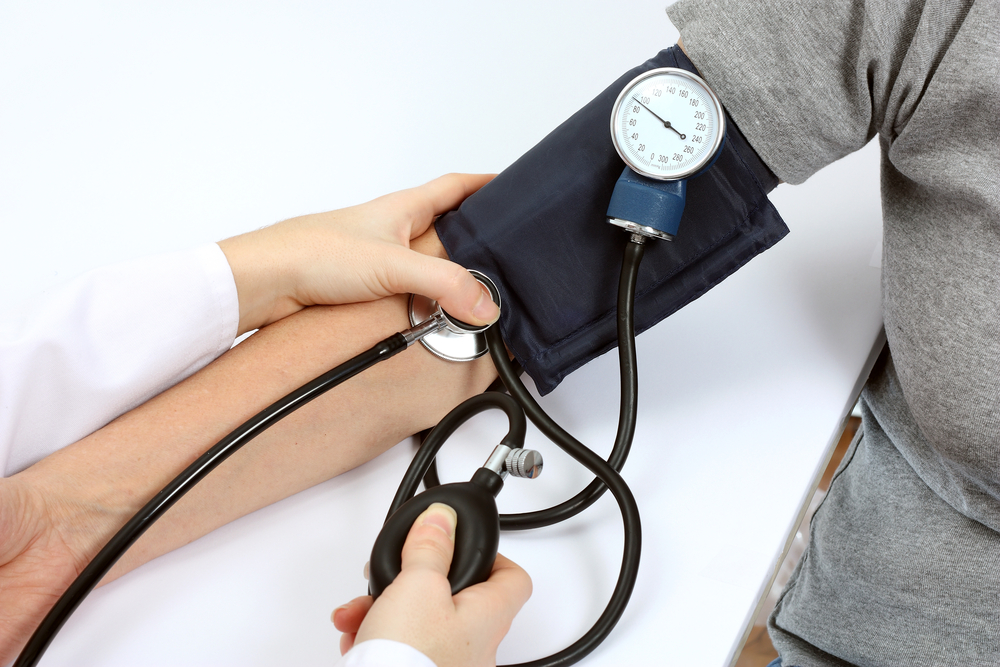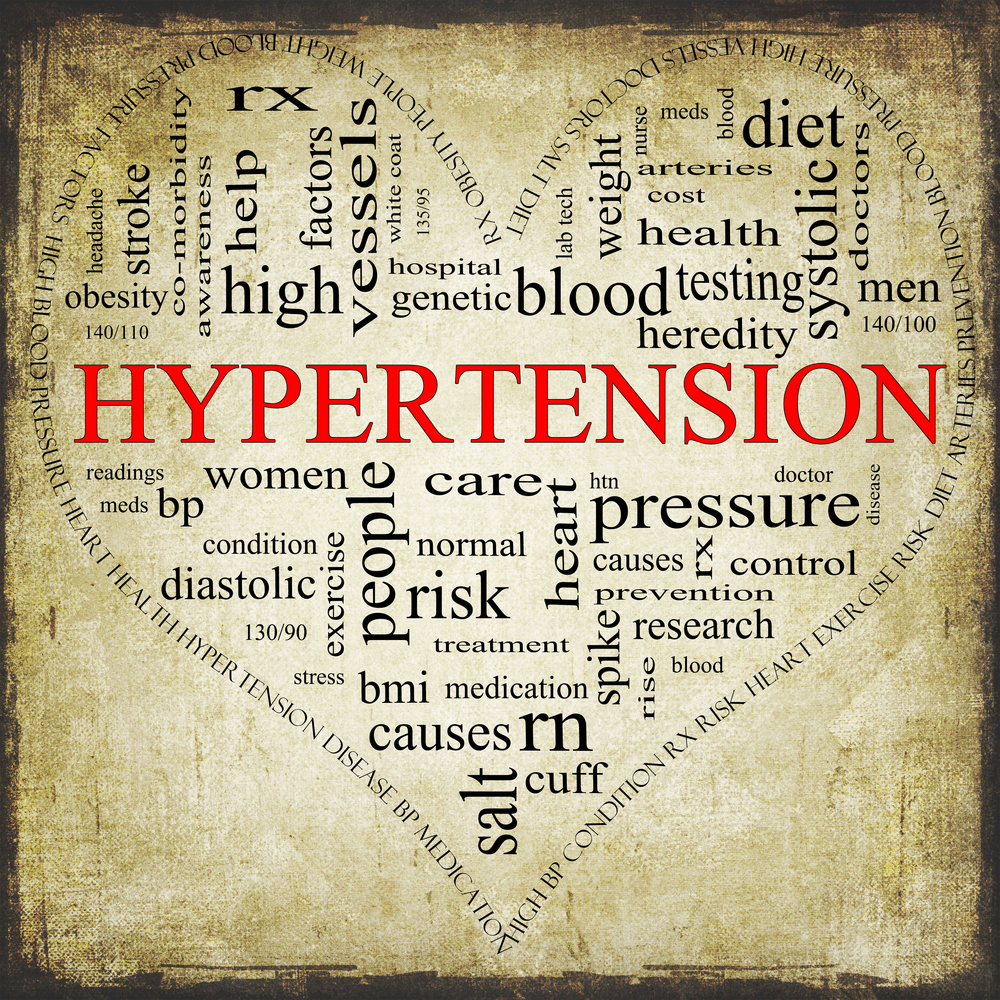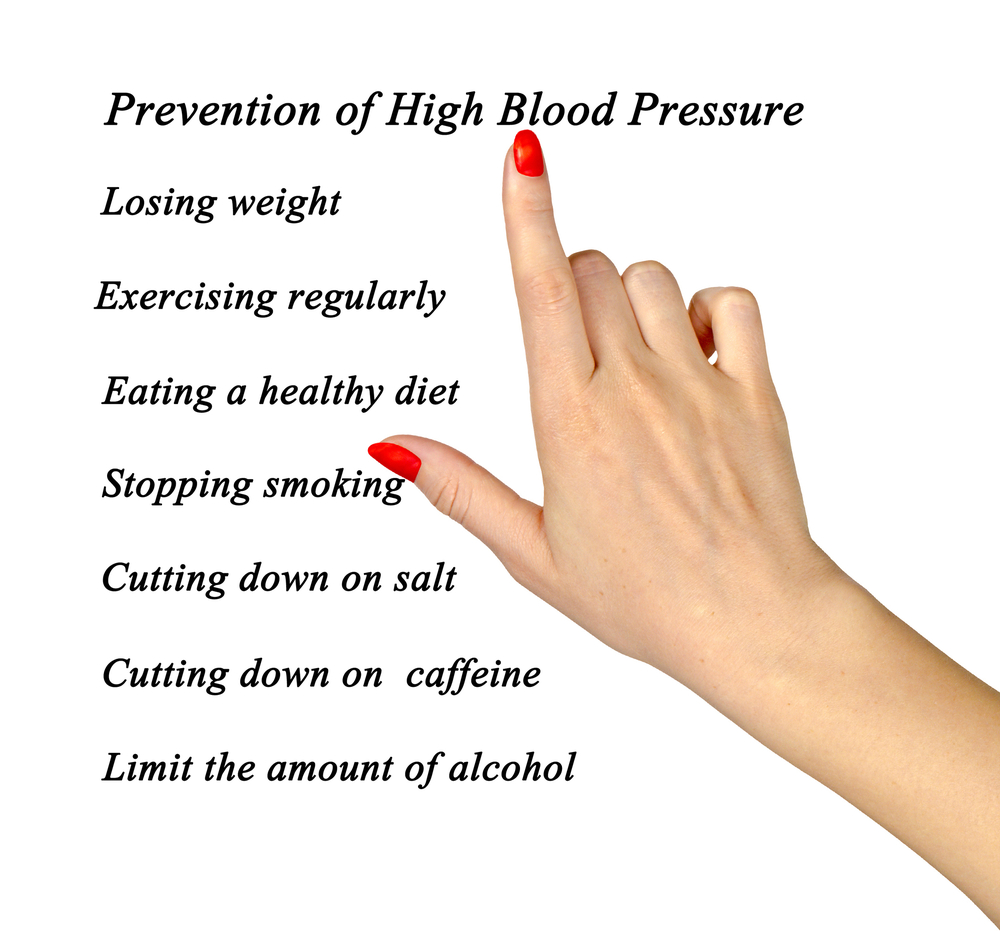Cardiovascular diseases tops the disease list and accounts for nearly 30% of global deaths in the year 2008. Cardiovascular mainly affect the brain and the kidney. The causes of cardiovascular disease are diverse but hypertension is the most common. As published in the United States report, an estimated 23 million people will lose their lives by the year 2030 due to cardiovascular diseases each year.
What is hypertension (high blood pressure)?
Hypertension is a condition in which the force of the blood pumped against your artery walls is elevated. This is a chronic medical condition which may eventually cause health problems, such as heart disease. Basically, blood pressure is measured by the amount of blood your heart pumps and the amount of resistance to blood flow in your arteries. This means that the more blood your heart pumps, the narrower your arteries are and you are more prone to develop higher blood pressure.
Blood pressure can be determined by two parameters, systole and diastole. These terms equal the maximum and minimum pressure, respectively. Ranges of blood pressure is mentioned by the medical association that normal blood pressure at rest is within the range of 100–140mmHg systolic, which is a top reading, whereas 60–90mmHg diastolic (bottom reading). Moreover, if blood pressure range is 140/90 mmHg or above, then it is said that you are suffering from high blood pressure.
Hypertension is classified as primary hypertension or secondary hypertension. It has been studied that 90–95% of cases fall under primary hypertension, which means high blood pressure without any medical cause. But, various evidences and researches have shown that people who don’t exercise often and people who consume more salt than the normal are at higher risk of developing hypertension or high blood pressure. Moreover, 5–10% of cases relates to secondary hypertension, which is caused by other conditions that affect the arteries, heart, kidneys, or endocrine system.
Salt and blood pressure level relation:
Can you imagine that even salt may harm your health and make you prone to hypertension and other cardiovascular diseases? Yes, various researches have proved that excessive dietary salt consumption over an extended period of time has been associated with hypertension and cardiovascular diseases. As per research studies, salt is listed as one of the prime reasons for developing high blood pressure.
Salt is composed of sodium and chloride, both are carefully controlled by the kidneys, and acute and chronic excessive intake of both ions – Na+ and Cl- can cause adverse health effects. Basically, sodium water and other solutes in the body maintain blood pressure, as well as other functions like regulation of the body temperature. But, when there is an excessive salt in the body, then the water potential in blood decreases due to the presence of solutes. Due to this, blood osmotic pressure will increase and the kidney reacts to excrete excess sodium and chloride in the body and water retention causes blood pressure to increase inside the blood vessel walls.
Strategies to combat hypertension:
Hypertension is a lifelong disease, which cannot be cured, but it can be prevented by implementing some lifestyle changes, dietary changes and effective medications. These are mentioned below:
Lower your blood pressure by reducing salt intake:
Salt is one of the major causes of hypertension. So, it is also one of the quickest ways to lower your blood pressure by using less salt in food preperations. An adult should eat not more than 6g of salt in a day, but we eat much more than this because most of the salt we eat is “hidden”, taken in the form of processed foods like bread and breakfast cereals, and ready-to-eat meals or takeaways.
Basically, to avoid the entry of hidden salts in your diet, we have to cut down our salt intake, which can be possible only if we eat foods that are low in salt. This could only be possible if you stick to a routine. Below are various ways that you can follow to eat less salt and help stabilize your blood pressure. These are:
- Try to make your food without salt, instead start using soy sauce, curry powders and stock cubes.
- To get flavor, you can add herbs and spices and seasonings like chilly, ginger, lemon or lime juice.
- You can also try using a small amount of low-sodium salt substitute. But, keep in mind that if you’re already suffering from kidney problems or diabetes, check with your doctor or nurse first.

Treating hypertension by changing in lifestyle:
Hypertension cannot be cured and it is regarded as a lifelong disease, but it can also be prevented by change in lifestyles. These are mentioned below:
- Quitting smoking- Smoking cigarettes or other tobacco products may put you at risk of various health hazards. Inhaling smoke or secondhand smoke throughout the day means your blood pressure may remain constantly high. You have to keep in mind that your blood pressure is raised by 10 mm Hg or more for up to an hour after you smoke a single cigarette. So, to avoid the risk of blood pressure and other cardiovascular diseases, break the smoking habit.Related: To Lead a Smoke Free Life- Quit Smoking
- Limit alcohol consumption- Consumption of alcohol is both good and bad for your health. It has been proved in various researches that consumption of alcohol in small amounts can potentially lower your blood pressure by 2 to 4 mm Hg. But, heavy consumption can lead to liver failure. So, to avoid the risks try to cut down binge drinking.
- Exercise regularly- Physical activity is very important for every person because it cuts down the risk of getting obesity-related diseases and other health conditions. At least 30 to 60 minutes of physical exercise in 5 days a week can lower your blood pressure by 4 to 9 millimeters of mercury (mm Hg).
There exists a relationship between your diet, exercise, and medications. If you are hypertensive patient, then you have to keep a close watch on all these factors because medications will only be effective if you keep a watch on your diet and regularly exercise. Most importantly, always consult your doctor before heading towards the final decision.
Medications for treating hypertension:
You should take medications only after the consultation with your doctor. There are several classes of antihypertensive drugs like diuretics (water pills), anti-adrenergics, and angiotensin-receptor blockers (ARBs). These high blood pressure medicines or drugs help you in lowering or stabilizing your blood pressure levels.
Also Read: Hypertension: Are you at risk?
Share this article and keep your friends and family updated on the latest health news!
Get useful health tips and remedies regularly, on your Facebook feed.





